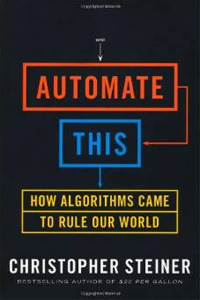|
| |
|
| |
|
|







|
|
TCHS 4O 2000 [4o's nonsense] alvinny [2] - csq - edchong jenming - joseph - law meepok - mingqi - pea pengkian [2] - qwergopot - woof xinghao - zhengyu HCJC 01S60 [understated sixzero] andy - edwin - jack jiaqi - peter - rex serena SAF 21SA khenghui - jiaming - jinrui [2] ritchie - vicknesh - zhenhao Others Lwei [2] - shaowei - website links - Alien Loves Predator BloggerSG Cute Overload! Cyanide and Happiness Daily Bunny Hamleto Hattrick Magic: The Gathering The Onion The Order of the Stick Perry Bible Fellowship PvP Online Soccernet Sluggy Freelance The Students' Sketchpad Talk Rock Talking Cock.com Tom the Dancing Bug Wikipedia Wulffmorgenthaler |
|
bert's blog v1.21 Powered by glolg Programmed with Perl 5.6.1 on Apache/1.3.27 (Red Hat Linux) best viewed at 1024 x 768 resolution on Internet Explorer 6.0+ or Mozilla Firefox 1.5+ entry views: 892 today's page views: 610 (20 mobile) all-time page views: 3386651 most viewed entry: 18739 views most commented entry: 14 comments number of entries: 1226 page created Fri Jun 20, 2025 14:26:03 |
|
- tagcloud - academics [70] art [8] changelog [49] current events [36] cute stuff [12] gaming [11] music [8] outings [16] philosophy [10] poetry [4] programming [15] rants [5] reviews [8] sport [37] travel [19] work [3] miscellaneous [75] |
|
- category tags - academics art changelog current events cute stuff gaming miscellaneous music outings philosophy poetry programming rants reviews sport travel work tags in total: 386 |

| ||
|
The theme for the weekly post was coming together by itself, and Mr. Ham's alerting me to hamkind's contribution (for a slightly flexible definition of ham) to the local space industry sealed the deal. We probably should start off slow, and Microsoft making Windows 10 a free upgrade qualifies; true, it was probably due to them realising that it'd mostly get pirated anyway, and that free Linux-based systems are fast catching up in terms of capabilities, but that's why competition's good. Also, they've caught on that forcing tablet mode on desktops is not what their customers want, and that it might be possible not to have to re-download gigabytes of updates and patches for each reinstall. Good on them! Other than that, it's adios Internet Explorer, as Microsoft wash their hands of a browser whose main purpose has been to download another browser (ok, and supporting legacy transaction add-ons in Korea). It isn't even that long since Chrome's beta release was commented on here... eh, it's been seven years? Anyhow, IE's market share cratering has finally persuaded them to junk their old code and start afresh... eh, it's gonna piggyback on Chrome extensions? [N.B. It's kinda sad that Radioshack and SkyMall are on their way out. For the former, it's more the principle of having a hobbyist retailer, since we've Sim Lim here (which, however, seems to be barely hanging on). As for SkyMall, their catalog was always good for a chuckle (in a good way) on long flights. Like, who wouldn't want a SharkBoat? Or some Flair Hair? If you're quick, you might still be able to snag a monocle...]  Seen on campus On the whole, it's still amazing how far browsers and the Internet have come; back in the olden days, when you wanted to hoax a website, you had to at least download the source, or maybe even resort to Photoshop. Nowadays, any kid can just edit it in-browser, as just happened with the Unmentionable Rumour. Unfortunately, he wasn't thorough with fixing the URL too, and far more importantly, he was bad at covering his tracks (despite probably not even actually doing any hacking). Well, live and learn. And then there's old-style muckraking, which cumulated in Our Most Successful Investment Firm's biggest venture having to apologize to other telcos for manufacturing negative reviews about them. Then again, it may just be that smear campaigns are currently in vogue, what with incumbent activists distributing flyers in Aljunied GRC - which, it must be said, has been cleared by the police as totally above board... unless somebody else does it. Oh, yes, I forgot that the focus is on new stuff. As for that, MyRepublic's pushing to be the fourth local telco. Haven't had many hiccups since switching to them almost two years ago, and their latest offering leaves little to be desired:  For a few months, at least. Ah, and someone's finally gotten around to flying cars. Additionally, Elon Musk has just suggested that the future will be fully networked-autonomous vehicles, as theorized here a couple of years ago. I'll be waiting to see if the weight reduction and linked movement propagation catch on too... Algos Again  (Source: amazon.com) Quick review of the latest library pickup: Automate This: How Algorithms Came To Rule Our World, by Steiner. The overlaps are getting more egregious now, but I suppose that's what happens as time goes on. The introduction does state that there's actually nothing very special about algorithms - a cooking recipe or shopping list could qualify, for example - but of course half the book has to be devoted to Wall Street. Leibniz was fingered as getting modern algorithms off the ground with his Explanation of Binary Arithmetic, part of his postulation that thought and logic could be reduced to binary expressions. Indeed, on hindsight, it's amazing how far the "if" conditional goes - for example, the "if A do this, else do that" is just "if A do this, if not A do that", for and while loops are simply repeated if statements, decision trees etc are just a huge load of if statements, and even recursion, which tends to be a little hard to grasp for beginners, can often just be a loop, which recall, is just a buncha ifs... But yes, Wall Street. 2010 flash crash (which just happened to the US dollar), check. Long Term Capital Management, check. Algo-trading line laying (with obligatory Rothschilds pigeon tech reference), check. Gaussian copula, check. Computer chess and poker, check. Moneyball, check (apparently, Jeremy Lin was identified as a top talent from his stats alone, by an amateur analyst). A.I. eating jobs, check, check, check. [N.B. I've got to say, I'm impressed by how prompt the bank was in mailing over a replacement debit card, just as my current one expired. Still sore over annual fees for the credit cards I forgot all about, though.] Ro-bot Traders Leaving these aside, there are some fresh nuggets. For example, it was the first time I had heard of Thomas Peterffy. He was one of the first quants, and in 1987 installed perhaps the first fully automated trading system, thereby opening the way to flawless arbitrage by spotting mispriced trades. When told that it was illegal and that they had to enter the trades into the terminal, his solution was to jury-rig a mechanical typist, controlled by a camera reading the terminal's screen, thus fulfilling the letter of the law. Before that, as a floor trader on the AMEX, he devised a pre-computed "cheat sheet" as a price guide on options, in a time when they were barely understood (and other traders apparently just winged it with their pricings). Despite this, he still got screwed of half his trading capital early on, before wising up and hiring cute girls as his representatives, while supplying them with tablets to receive instructions on. Art Evaluated After losing its job once electronic trading was allowed, the rubber-fingered bot found a new calling What might (or might not) be more surprising, is that algorithms can discern the finer things in life. Might, because art and music is supposed to be steeped in... human sensibilities; might not, because, well, all those music theory lessons couldn't have been for nothing, right? And what is theory but a collection of rules? Enter Mike McCready, a Nebraska-born musician who found fair success as a solo artist in Spain. This got him into contact with a small Barcelona tech firm which had developed an algorithm for analyzing the structure and patterns of tunes based on spectral deconvolution, which in effect reduced what was thought (at least by some) to be unquantifiable, into mere numbers. By comparing new songs to known hits on these metrics, it was possible to predict how well they would do, and they correctly picked out Norah Jones' debut Come Away With Me album as a sure success, before it sold 20 million copies. Composers were soon feeding their new creations into McCready's Polyphonic HMI website to get them scored for fifty bucks apiece, which catapulted several into the limelight. This might have been of concern by itself to musicians, without considering the other direction - if music could be deconstructed so easily by algos, then wouldn't it also be simple to create new works following the same principles? While not strictly true in general, it did turn out to be doable for classical music, as David Cope demonstrated with his series of algorithmic muses - Emmy, Emily and Annie (the first two have been retired, since Cope felt that they would lose respect by churning out pieces ceaselessly). The usual responses (most recently demonstrated with IKEA-brand modern art) cropped up - listeners who praised the bots' creations when unaware of their true nature, would then accuse them of having "no soul" when they found out. Annie has further diversified into penning haikus, and though literature has proven to be more challenging (repeating motifs and riffs doesn't go nearly as far), it's not that there aren't patterns for algorithms to take advantage of (as illustrated succinctly with the standard plot of shonen manga [N.B. sure, there're lotsa details - see these discussions on Bleach's Ichigo, a.k.a. he whose ancestors Really Got Around]) [N.N.B. That said, this is all presenting the best side of algos; one would expect them to be less impressive on unconventional entries (as shown with images), and maybe not have an overall accuracy that is that incredible (since it isn't clear how many Lins/Joneses were missed, or blowouts picked). This reminds me, I should probably show more enthusiasm in upselling results, it appears that Brit-style equivocation and understatement isn't so appreciated.] Medicine, Psychology, Everything It was perhaps only to be expected that algorithms would be used to measure people too (then again, recall that algorithms are simply procedures, that could well be semi-random). Then again, this had always been done - what are academic tests but blunt algos checking output against input? Definitely, these could be gamed, so the more demanding recruiters and employers were soon after better measures. Kelly Conway's eLoyalty was one of these employers, and he started out the standard route, by relying on paper qualifications. Unfortunately, he found that the MBAs he hired were indeed disciplined and detail-oriented, but lacked the extra creativity needed to assemble new solutions where none had existed before. They turned (as did many prestigious software companies/quant shops) to raw I.Q. tests and brainteasers (which, however, are also increasingly gamed), but their true salvation arrived when the financial crash freed up hordes of talent from the banking sector. And eLoyalty's mission? To create algorithms (two million, at last count, though such definitions are a bit iffy) that deduce a caller's personality from his speech patterns, and guide answerers towards appropriate responses (if fact-finding, don't make small talk; if emotional, show empathy) - now you know why "your call may be recorded for training purposes"... and the trainees may not even be human (and, as recently pointed out, neither may the respondees in due time) And the underlying behavioural assumptions? Kahler's Process Communication Model, which was first picked up by NASA to ensure that their astronaut teams - whom would have to live alongside each other for months on end in cramped conditions - wouldn't freak out and scupper multi-million dollar equipment due to incompatibility (indeed, a Soviet cosmonaut was pissed enough to drive a needle into his erstwhile comrade's bone, and one of NASA's own came this close to murdering a teammate, had his shift gone on for one more day) [N.B. Crichton ran with the theme even before that; if you're curious, you could feed a sample of your writing to the newly-unveiled Watson Personality Insights service demo, and see how you turn out on the Big 5 traits.]  The Jeopardy! winnings didn't go very far (Source: nytimes.com) And then there's healthcare, with the cover story being Tuomas Sandholm (the computer poker expert) tying up with Harvard economist Al Roth to develop a kidney matching algorithm [N.B. and as coincidence would have it, his student's presentation was just before mine in last year's workshop; now, one could think, how complex can kidney exchange be? A's family member gives one to B, and B's one to A, and that's it, no? Well, no, it can get really complicated. And that's before getting into other relationships...] So yeah, to sum up - algorithms? They're doing fine, I guess. Jobs for humans? Uh, on that... Next: A Man Of His Time
|
|||||||
 Copyright © 2006-2025 GLYS. All Rights Reserved. |
|||||||